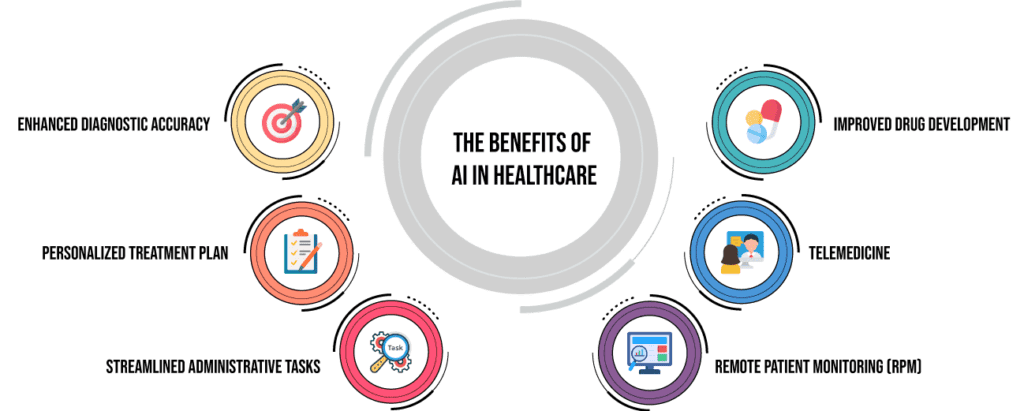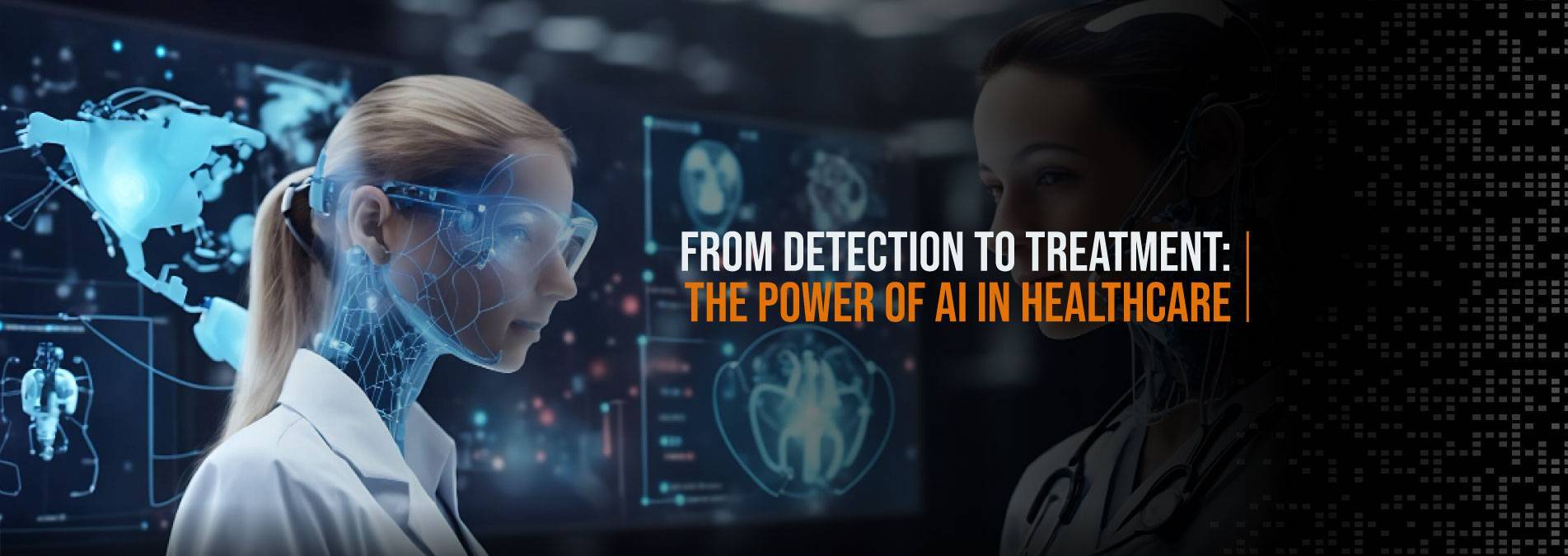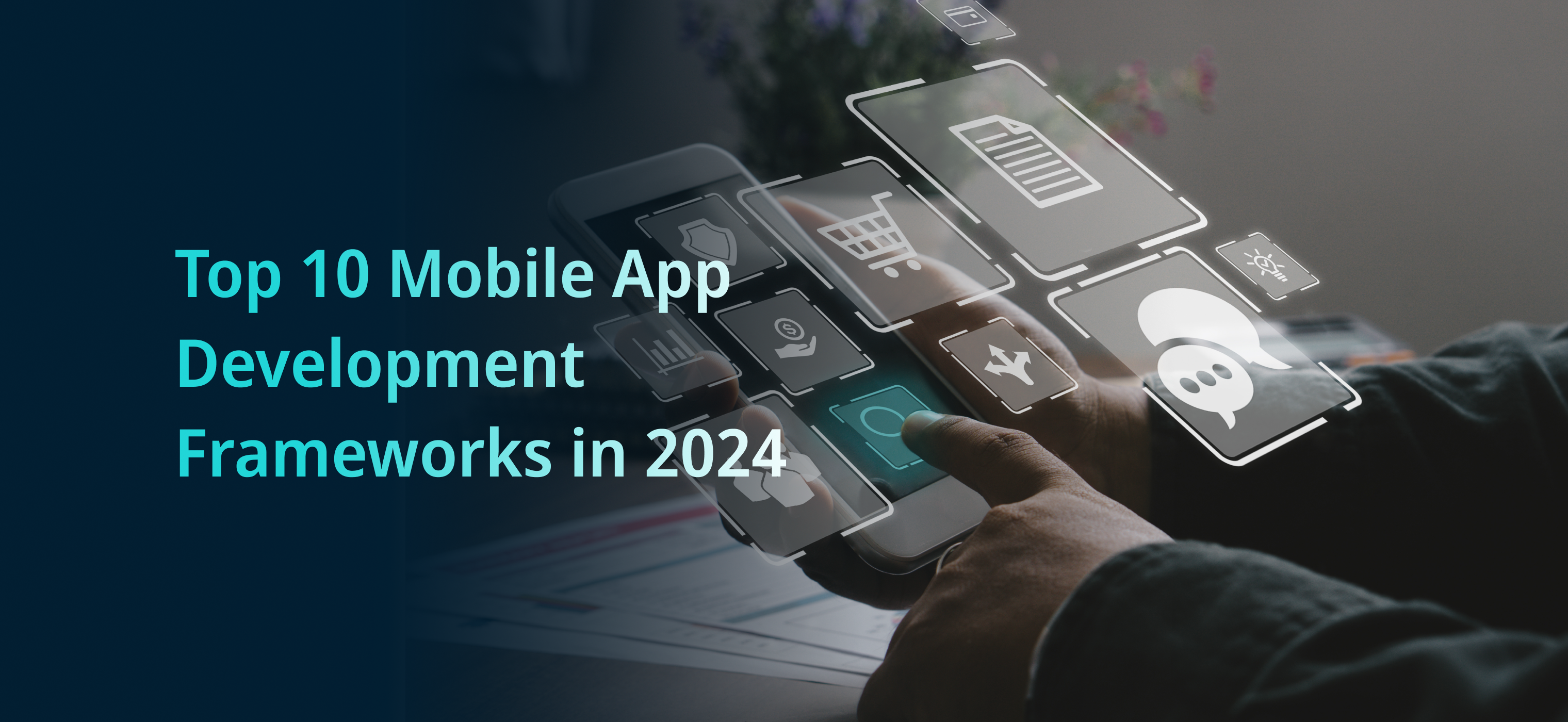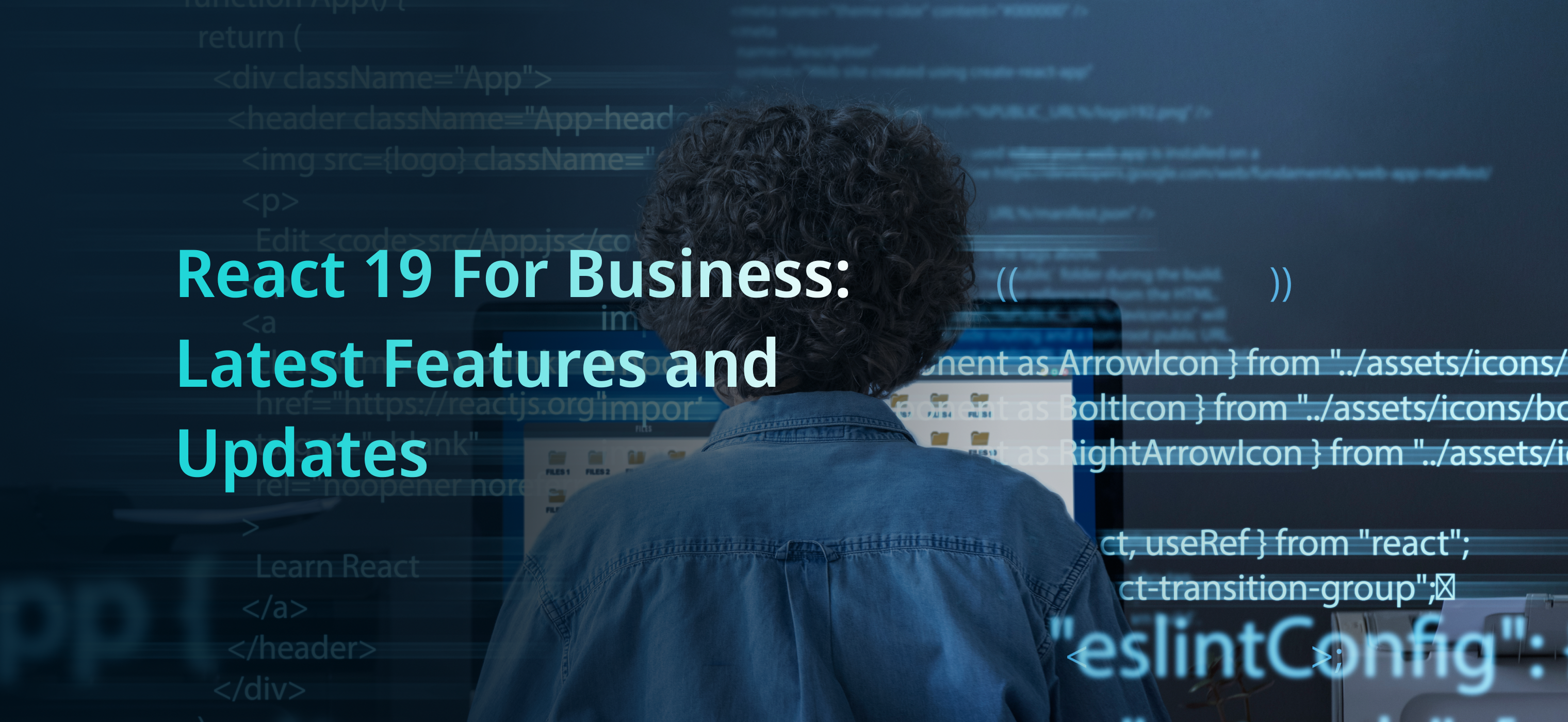The potential of Artificial Intelligence (AI) in Healthcare is virtually limitless. AI in Healthcare has the power to revolutionize the way we diagnose and treat illnesses, transforming the entire healthcare industry. With the help of AI, medical professionals can detect diseases at earlier stages, identify treatments more accurately, and save countless lives in the process. In this blog post, we’ll explore how AI is transforming diagnosis and treatment in healthcare, and what that means for the future.
What is Artificial Intelligence (AI) in healthcare?
Artificial Intelligence (AI) in healthcare refers to the application of advanced technologies and algorithms that enable computers and machines to simulate human intelligence and perform tasks that typically require human intelligence. In the context of healthcare, AI aims to enhance the capabilities of healthcare professionals, improve patient care, and transform the healthcare industry as a whole.
AI in healthcare utilizes complex algorithms, machine learning, natural language processing, and data analytics to process and analyze vast amounts of medical data. This includes electronic health records, medical images, patient history, genetic data, and even real-time monitoring data from wearable devices. By analyzing this data, AI systems can provide valuable insights, support decision-making processes, and help in diagnosing and treating diseases more accurately and efficiently.
One of the key advantages of AI in healthcare is its ability to process and analyze large amounts of data at a speed and accuracy that surpasses human capabilities. This enables AI systems to detect patterns, identify potential risks, and predict outcomes, all of which can lead to improved diagnosis, personalized treatment plans, and better patient outcomes.
Artificial Intelligence in Healthcare has the potential to revolutionize the way healthcare is delivered. It can support medical professionals in making more informed decisions, enable early detection of diseases, enhance precision in treatments, and ultimately save lives. As AI continues to evolve, the healthcare industry can expect to witness significant advancements and improvements in patient care and overall healthcare outcomes.
The Benefits of AI in Healthcare

Artificial Intelligence in Healthcare has the potential to bring numerous benefits and transform the way healthcare is delivered. By leveraging advanced technologies and algorithms, AI can revolutionize the entire healthcare industry, improving patient care and saving lives. Here are some key benefits of AI in healthcare:

1. Enhanced Diagnostic Accuracy: AI systems can analyze vast amounts of medical data, such as electronic health records and medical images, to detect patterns and identify potential risks. This leads to more accurate and timely diagnoses, enabling early intervention and better patient outcomes.
2. Personalized Treatment Plans: AI can analyze a patient’s medical history, genetic data, and real-time monitoring data from wearable devices to create personalized treatment plans. This tailored approach improves treatment efficacy and minimizes adverse effects, optimizing patient care.

3. Streamlined Administrative Tasks: AI can automate administrative tasks, such as scheduling appointments, managing medical records, and billing processes. This reduces the burden on healthcare professionals, allowing them to focus more on patient care.
4. Improved Drug Development: AI algorithms can analyze vast amounts of scientific literature and clinical data to accelerate drug discovery and development. This can lead to the development of more effective and targeted therapies for various diseases.
5. Telemedicine and Remote Patient Monitoring: AI can support telemedicine by providing real-time insights and monitoring of patients remotely. This enables healthcare professionals to provide timely interventions and ensure continuous care for patients in remote locations.
AI in Diagnosis:
Artificial Intelligence in Healthcare has the potential to revolutionize the diagnosis of diseases. AI systems can analyze vast amounts of medical data, such as electronic health records, medical images, and patient history, to detect patterns and identify potential risks. This leads to more accurate and timely diagnoses, enabling early intervention and better patient outcomes.
One of the key advantages of AI in diagnosis is its ability to process and analyze large amounts of data at a speed and accuracy that surpasses human capabilities. AI algorithms can quickly identify subtle patterns and anomalies that may indicate the presence of a disease, even before symptoms are noticeable to a healthcare professional. This early detection can significantly increase the chances of successful treatment and improve patient outcomes.
Moreover, AI can assist in the diagnosis of rare and complex diseases by comparing the patient’s symptoms and medical data with a vast database of medical knowledge. This can help healthcare professionals make more informed decisions and provide personalized treatment plans tailored to each patient’s specific needs.
AI in diagnosis also has the potential to reduce errors and improve the efficiency of healthcare systems. By automating the analysis of medical data, AI can free up healthcare professionals’ time, allowing them to focus more on patient care and reducing the risk of human error.
Challenges of AI in Healthcare
While the potential of Artificial Intelligence (AI) in healthcare is vast, there are also challenges that need to be addressed in order to fully harness its capabilities. One of the main challenges is ensuring the accuracy and reliability of AI algorithms. The data that AI systems rely on for analysis must be high-quality and free from biases in order to provide accurate diagnoses and treatment recommendations. Additionally, there is a concern about the potential for AI to replace human healthcare professionals. While AI can support and enhance the work of healthcare professionals, it cannot replace the empathy and human touch that is crucial in patient care. Striking the right balance between AI and human involvement is essential.
Another challenge is the need for regulations and ethical guidelines in AI healthcare applications. There must be clear standards and regulations in place to ensure patient privacy, data security, and accountability in the use of AI in healthcare. Lastly, the implementation and adoption of AI in healthcare require significant investments in infrastructure, training, and integration with existing systems. Overcoming these challenges will be crucial in order to fully leverage the potential of AI in transforming diagnosis and treatment in healthcare.
Future of AI in Healthcare
The future of Artificial Intelligence (AI) in healthcare is both exciting and promising. As technology continues to advance, we can expect AI to play an even bigger role in transforming the way we diagnose and treat diseases.
One area where AI is expected to make significant advancements is in personalized medicine. With the ability to analyze vast amounts of patient data, including genetic information, AI can help tailor treatment plans to each individual’s specific needs. This personalized approach has the potential to improve treatment outcomes and minimize adverse effects.
Another area of development is in predictive analytics. AI algorithms can analyze historical data to identify patterns and predict future health outcomes. This can help healthcare professionals intervene earlier, potentially preventing the onset of diseases or complications.
AI also holds promise in revolutionizing medical research and drug discovery. By analyzing large datasets and scientific literature, AI can accelerate the development of new therapies and identify potential drug targets more efficiently.
Furthermore, AI has the potential to enhance the patient experience through technologies like virtual assistants and telemedicine. These tools can provide personalized support and enable remote monitoring, allowing patients to receive continuous care from the comfort of their homes.
While there are still challenges to overcome, such as ensuring data accuracy and addressing ethical concerns, the future of AI in healthcare looks promising. As technology continues to evolve, we can expect AI to revolutionize diagnosis and treatment, ultimately leading to improved patient outcomes and a more efficient healthcare system. So, get ready to embrace the future of AI in healthcare – it’s going to be transformative.
Visit Internet Soft for the latest tech trends and insights around AI, ML, Blockchain, along with NeoBanking and timely updates from industry professionals!
Need assistance or have questions? Reach out us at sales@internetsoft.com.








